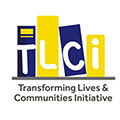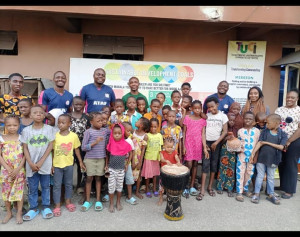
Our Story
Born and raised in Ajegunle – a community regarded by BBC, as one of Lagos’ toughest and most dangerous slums to live in, no one can tell the story of living in an underserved community like the team that live and work therein.
From living in crammed homes with over 40 tenants sharing a public bathroom and toilet or easing out via open defecation, to living in homes without water, poor sanitation and chaos from the blaring noise of a neighbor’s sound system.
Then, the quality of schools therein with tuition at an average of $30 per term to as low as a quarter of a dollar per day, one would wonder at the quality of education these fees can offer.
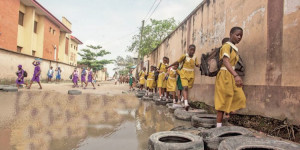
Students returning from school after a rainy day in Ajegunle
Then we grow up and realize we have skill gaps due to the poor quality of foundational education received and the lack of exposures. This sad reality conscripted us to battle with the challenge of smoothly integrating into the larger society because we felt we were not good enough or are ill-equipped for the future.
Compounding the problem, is the stereotyping those of us from low-income communities, slums like Ajegunle had to deal with and are still dealing with – the spoken and unspoken discrimination as well as stigma. Not to forget the limitation faced in getting a job or the risk of losing one, just disclosing having a background from Ajegunle. This can be dehumanizing, in spite of the fact that this same community is famous for producing renowned footballers and music stars.
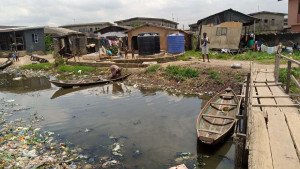
For the sake of emphasis, Ajegunle is an “identity” for a community for the lower class and socio-economically disadvantaged. With a population lower than 2 million people, 75,776/km2 population density and an annual population growth of 3.3% on a land mass of 12.49km2 Area (one of the most densely populated community in Sub-Saharan Africa), the youths who have developed thick skin from deprivations and limitations hustle to survive, by hook or crook, and are popular for their wiles, some from frustrations.
The resultant effect is that the community became notorious as breeding ground for all criminal elements. Street fights, gangsterism among rival cults, drug abuse, teen pregnancy, social vices and youth indulgence in violent crimes are common occurrences. Many of the youths are feared and as such constitute a threat to the security, peace and prosperity of the community and cosmopolitan city of Lagos and by extension, Nigeria.
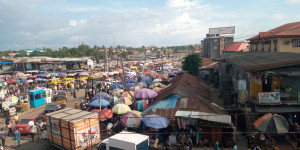
This is Boundary market roundabout in Ajegunle
All of these ugly realities we grew up and are witnesses to, informed our decision to change the narrative of our community through our first and current initiative@TransformingAjegunleProject with a view to creating and designing a model for community development which can be replicated across other low-income/underserved and rural communities towards its transformation.
This project commenced in 2016 with data gathering, samples collection, experimenting with approaches to know the model(s) that will be most suitable for effective impact and sustainability. From insights gained from our researches and experiments, the project gained momentum in 2018. Guided by our vision and mission, we identified two areas that are instrumental to development in low-income communities, which are: education and accountability in governance. We have since been exploring both to the best of our abilities.
